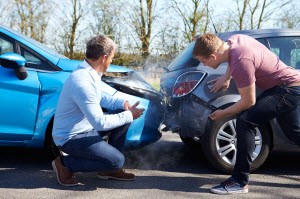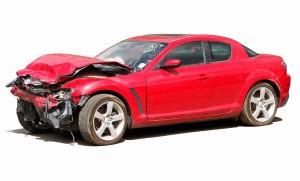 No matter how carefully you drive in Stoughton, Brockton or Randolph, car accidents can happen to anyone. Figuring out the logistics afterwards can be confusing, and it’s normal to have questions about post-collision repairs, insurance claims and everything in between.
No matter how carefully you drive in Stoughton, Brockton or Randolph, car accidents can happen to anyone. Figuring out the logistics afterwards can be confusing, and it’s normal to have questions about post-collision repairs, insurance claims and everything in between.
To make navigating an accident’s aftermath a little bit easier, we’ve provided a list of the most frequently asked questions we get in the wake of collisions. Read on if you’re interested in learning more:
1. My insurance company requested I give them a written statement describing the accident. Should I give it to them?
It’s best not to make a written or recorded statement to a claim’s adjuster. There’s no law that requires it, and doing so could end up hurting your case.
2. How do claims adjusters determine settlements for rear-end collisions?
Rear-end accidents usually go undisputed, as settlements are routine. They are based on the damages sustained after an accident, but there is no hard and fast formula that goes into figuring that out.
3. Can I make a counteroffer to the insurance company that’s settling my case?
You have several options available if you want to make a counteroffer. To get the best results, write a car accident demand letter with your counter-offer and supporting arguments in writing.
4. After a rear-end accent, what’s the average payout for pain and suffering?
While there is no “average” dollar amount for pain and suffering, there are a few factors you can take into consideration to get a rough estimate. Most accident settlements have two damage categories — general damage and special damage—and both are taken into account when settling a personal injury claim.
Special damages cover monetary losses after a crash, including medical bills, repairs, loss of income, etc. General damage include pain and suffering, and can include physical pain, emotional distress and other negative outcomes.
 Pain and suffering damages are included in most settlements, and the final amount is determined by the extent of your injuries, the nature of your medical treatment and the time it takes to reach a full recovery.
Pain and suffering damages are included in most settlements, and the final amount is determined by the extent of your injuries, the nature of your medical treatment and the time it takes to reach a full recovery.
5. Is there a statute of limitation for suing after a collision in Massachusetts? Are there options if it’s past?
Massachusetts uses a “no-fault” car insurance system, which means an injured person turns to their car insurance company to compensate for loss of income and injuries up to a certain dollar limit — usually $2,000.
That means motorists and passengers in Massachusetts can only pursue an insurance claim against the at-fault party if the injured claimant sustained at least $2,000 in medical expenses from the car accident, or if the claimant’s injuries include a broken bone, a significant loss in sight or hearing, or permanent disfigurement.
Each state has its own time limit for filing a suit in civil court. Deadlines vary across personal injury cases, including car accidents, and suing may not be an option if that limit has passed. In Massachusetts, the statute of limitations runs out after three years for personal injury claims.
6. What is a release of liability after a car accident? What does it mean if I sign one?
A release of liability effectively ends litigation in most personal injury cases, including car accidents. Signing a release of liability is a serious stage in an injury settlement, and you can’t go back once it’s done. Until you have a full understanding of the damages stemming from a collision, avoid signing any release of liability.
7. Can I take legal action if I was hit by a car while riding my bike?
If a vehicle hit you while you were riding a bike, your legal options are similar to what they would be if you were a driver or passenger in another car. However, since bicyclists aren’t required to hold car insurance, there could be some issues when it comes to making an insurance claim for your damages.
Depending on the insurance rules where you live, you can file a claim with the at-fault driver’s insurance company, under your health insurance or under your personal injury protection coverage.
If you live in Massachusetts and have personal injury protection coverage, or a family member has PIP coverage that applies to you, you are required to make an injury claim under that policy since Massachusetts uses a no-fault system. There are some circumstances where you could step outside of the no-fault system, but most claims get resolved with insurance settlements.
8. Do I have options if my car was totaled and I still owe money on it?
Unfortunately, this happens to many drivers after car accidents. Your car may be so damaged after a collision that your insurance company deems it a total loss, which means the cost of repairs exceeds the car’s value.
Insurance companies pay the fair market value, or actual cash value, of the car in these cases, but you could still be required to repay a car loan afterwards. What happens next depends on whether or not you have gap insurance.
If you have gap insurance, you will be covered for the difference between what your insurance company is willing to pay and the amount you owe. Most vehicle purchase agreements require gap insurance, so you may be covered without realizing it.
If your car is a total loss, find a copy of your vehicle purchase agreement, car insurance policy and read them carefully. If you do not have gap insurance, you can try to get the insurance company to look at its initial appraisal of the vehicle’s value, and argue that you’re entitled to a higher payout.
9. Will my insurance rates go up if I file a vehicle damage claim under my collision coverage?
Oftentimes, insurance companies raise your monthly rates after a car accident, but these costs typically aren’t based on the fact that you filed a claim. Rates are based on a number of factors, including the type of car involved, the age of the driver, the location of the accident and your driving record — which is the largest factor in determining what you pay for car insurance. They are usually more concerned with the fact that you were in an accident, and not the damages you claim to have sustained.
If you were involved in a car accident with injuries, your insurance company will take past accidents, moving violations and other factors present on your driving record into consideration to decide whether or not to raise your rates. Depending on the number and the severity of past violations on your record, insurance companies could cancel your insurance plan altogether.
10. Is there a way to get a police report amended?
Police reports contain information about the drivers, passengers and vehicles involved in a crash, in addition to a narrative describing how the collision occurred. Some officers may make notes on who may have violated a traffic law, or which driver caused the accident, but some reports could include information that’s incorrect or incomplete.
If a report is one-sided, contains false information or includes a narrative you disagree with, you could be able to write your own account of the collision and request to attach this evidence to the police report.
Contact Collision 24 for More Information
Filing an insurance claim after a car accident in Brockton, Stoughton or Randolph can be tricky, especially with so many factors to take into consideration. If you have any questions about your insurance or collision repairs, contact Collision 24 online or call our shop at (508) 586-2010.
